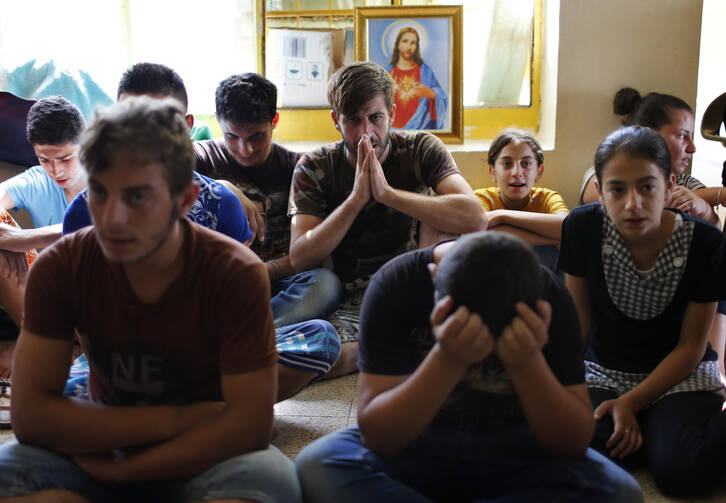Amnesty International has issued a devastating report detailing summary executions, child abductions, sexual assaults, forced religious conversions and “ethnic cleansing on a historic scale” committed by the Islamic State militant group as it swept across northern Iraq from its base of operations in Syria. Amnesty International found that the Islamic State systematically targeted non-Arab and non-Sunni Muslim communities in overrun communities, killing or abducting hundreds, possibly thousands, and forcing more than 830,000 others to flee the areas it has captured since mid-June. Field investigators conclude that ISIS “is systematically and deliberately carrying out a program of ethnic cleansing in the areas under its control.” Ethnic and religious minorities—Assyrian Christians, Turkmen Shiites, Shabak Shiites, Yazidis, Kakai and Sabean Mandaeans—have lived together in the Nineveh Province, much of it now under ISIS control, for centuries, A.I. researchers point out. “Today, only those who were unable to flee when I.S. fighters seized the area remain trapped there, under threat of death if they do not convert to Islam.”
ISIS Terror Tracked
Show Comments (
)
Comments are automatically closed two weeks after an article's initial publication. See our comments policy for more.
The latest from america
Los Angeles Archbishop José H. Gomez was one of several community leaders who joined to open the Family Assistance Program, aiding those affected by recent ICE raids.
On Friday, Pope Leo XIV issued a statement on the theme "Migrants, missionaries of hope."
In Steven Spielberg’s “Close Encounters of the Third Kind,” an ordinary electrician has a transcendent encounter—with U.F.O.s, not God.
Many of my acquaintances have given up “reading about something that didn't happen.” But fiction has long-term and concrete value, both mentally and socially.








